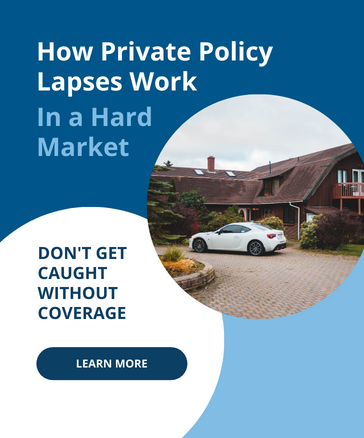Questions to Reveal Commercial Insurance Coverage Gaps

As a business owner, it’s important for you to understand how your commercial insurance policies work together. If you don’t, you run the risk of overpaying for coverage or ending up on the wrong side of a triggering event. In the Commercial Insurance world, these are often referred to as coverage overlaps and gaps. And both can be bad for business. But this begs the question: how do you know if coverage gaps or overlaps exist? It comes down to asking the right questions.
In this post, we’re going to go over some of the top questions to ask yourself to see if coverage gaps exist in your business policies. But first, a quick explanation on coverage gaps.
What is a Coverage Gap?
A coverage gap is when there is a period of time during which a person or business does not have insurance coverage for a particular risk or type of loss. Coverage gaps can be particularly bad because they your businesses vulnerable to unexpected financial losses. If your business experiences a loss during a coverage gap, it may result in lost revenue, lost inventory, and damage to your reputation. In some cases, businesses don’t have the financial resources to recover from such a loss, which could result in the business closing its doors permanently.
In addition to the financial impact, a coverage gap can also make it more difficult for you to obtain insurance coverage in the future. After all, insurance underwriters view coverage gaps as a red flag, indicating that an individual or business may be a higher-risk customer. This can result in higher insurance premiums, higher deductibles, or even denial of coverage altogether.
Questions to Help You Mind the Gap
Are you covered if an employee sues your business?
We are living in a litigious time. You may have some protection if you’re carrying Employment Practices Liability Insurance (EPLI) and Directors and Officers (D&O) coverage.
Are you covered if a customer or client sues your business?
Mistakes happen, despite the best of intentions. Professional liability insurance, also known as Errors & Omissions (E&O) insurance, can help protect against claims like these.
Are your operating expenses covered if you’re forced to temporarily close your business?
Business Interruption insurance and Supply Chain insurance can help offer financial protection for your company during temporary closures.
What happens if your mechanical systems break down?
There’s one policy that can help you get back on track. It’s called Equipment Breakdown insurance.
Is your business covered if it is damaged by a flood?
This is usually excluded from commercial property insurance, so you will likely need separate flood coverage.
Coverage Gap & Overlap Questions
These are just some of the questions we’ve identified to help you identify coverage gaps. We’ve compiled the full list of questions inside our resource: Under-Covered? Over-Covered? Or Just Right? Ask Yourself. You can view or download it here:
Identify Commercial Insurance Coverage Gaps with a Business Policy Audit
Overall, a commercial insurance coverage gap is something that should be avoided where possible. To ensure that you are adequately protected against potential risks and losses, it’s important to work with a trusted insurance advisor to assess your needs, identify potential coverage gaps, and select appropriate insurance policies. By taking these steps, you can help reduce the risk of a coverage gap and protect yourself or your business from financial losses. Contact Burnham WGB Insurance Solutions to request an audit of your business policies to help you get in front of costly gaps or overlaps in your coverage.


